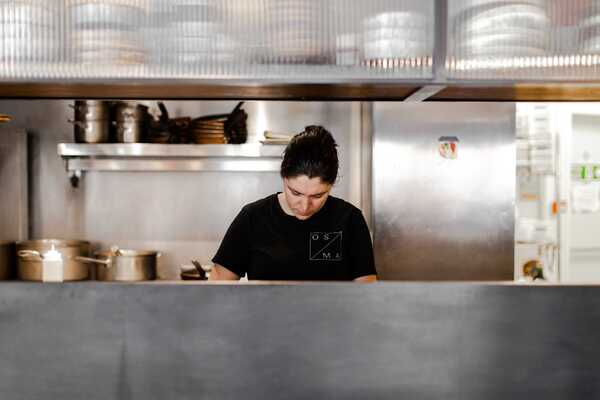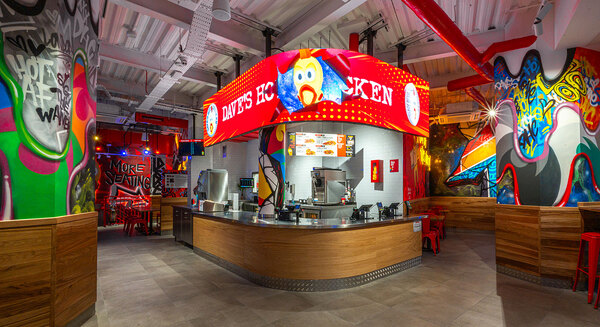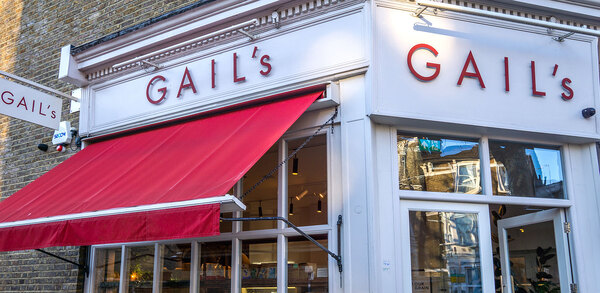Hospitality operators react to ‘bizarre’ mini budget that leaves the sector ‘in the cold’
Hospitality businesses have expressed disappointment at the measures announced in Chancellor Kwasi Kwarteng’s mini budget, which notably left out business rates and VAT.
Operators and industry bodies have long called for a reduction in VAT since the UK’s hospitality and tourism VAT rate was raised from 12.5% to 20% in April, making it among one of the highest in Europe.
There was no other mention of VAT in the mini budget besides the fact that overseas tourists will be able to shop VAT-free in the UK, while the axing of business rates will only apply to newly occupied premises in the government's new low-tax zones it plans to create in agreed areas across England.
Hospitality operators raised concerns that the mini budget neglected small to medium-sized businesses, while introducing measures such as scrapping the cap on bankers’ bonuses.
Ellis Barrie, chef owner of Lerpwl restaurant in Liverpool, said: “It’s very bizarre. Corporations and the highest earners are not the ones who will be suffering over the next few years. They are just throwing those small businesses in hospitality under the bus to fight for themselves.”
Sacha Lord, night-time economy adviser for Manchester, tweeted: “Speechless. No VAT or Biz Rate support for Hospitality. Corporation tax cuts are completely useless if businesses aren’t turning a profit, or worse, closed. These announcements will now mean last orders for thousands of hospitality businesses meaning mass redundancies.”
Michael Kill, chief executive of the Night Time Industries Association (NTIA), expressed similar concerns about the fact that the night-time economy has been "left out in the cold”.
He added: “We are extremely disappointed with the chancellor’s announcement this morning. It will be seen as a missed opportunity to support businesses that have been hardest hit during this crisis.”
One of Kwarteng’s measures included cancelling the planned increase in duty rates for beer, cider, wine and spirits.
For Joe Cussens, managing director of the Bath Company, which operates four gastropubs, this policy does not address the root problem of spiralling inflation that is hindering the recovery and growth of the hospitality industry.
He said: “When they put those [duty rates] up, it’s a small increase on your cost and not having them means we are not exposed to that small increase. But at a time when you are facing massive increases in costs across the board, whether it’s labour, energy, fresh produce, dairy, cooking oil, the fact that you’re not going to have a rise on a barrel of beer is a drop in the ocean.”
Steve Alton, chief executive of the British Institute of Innkeeping, added: “Today’s announcement by the chancellor does not address the vulnerability of our members’ pubs in every community. The energy price guarantee, whilst welcome, will see most pubs at least doubling their energy costs from last year in addition to the inflationary pressures on their costs of doing business.”
Other industry leaders have welcomed the steps taken by the government to encourage growth in the economy as they hope to see further positive reforms in the coming months.
Emma McClarkin, chief executive of the British Beer and Pub Association, said: “The measures announced today will mean a boost of £500m for our sector, enabling growth following successive crises and allowing us to thrive in the future. We look forward to the continued reduction of taxation on the sector at the next budget – the need for a reduced VAT rate for hospitality and business rates reliefs remain as strong as ever.”
Kate Nicholls, chief executive of UKHospitality, added: “The stated objectives of boosting growth and tackling inflation rightly puts business at the heart of the government's agenda, but today’s measures will take time to take effect.
“The chancellor committed to making the UK a globally competitive tax regime, yet overlooked two obvious levers to achieve that, through lower VAT and business rates reliefs," she added. “Indeed, today’s announcement includes a number of positive measures which will bear fruit in due course, but more is urgently needed to help struggling businesses survive through the winter.”
But for Simon Wood, chef and owner of Wood Manchester, there is no time left. Speaking to The Caterer, he warned: “There is no future; that’s the problem. We don’t need help in the future. We need help now. It’s as simple as that. It’s absolutely disgraceful.”
Other measures introduced in the mini budget included clarification that the 1.25% rise in National Insurance would be reversed, the cancellation of a proposed rise in corporation tax, and a cut of 19p to the basic rate of income tax.
It comes after the announcement of the Energy Bill Relief Scheme that would reduce wholesale gas prices for six months from 1 October until 31 March 2023, which was made earlier this week.
















